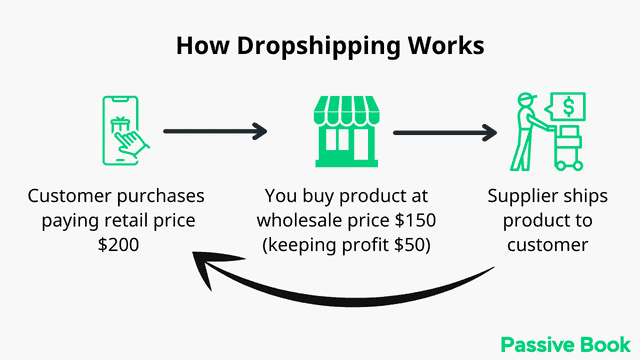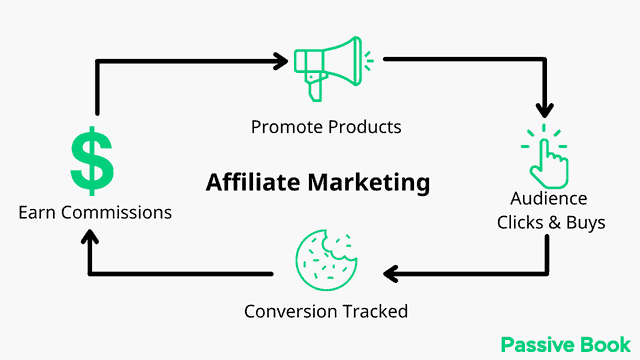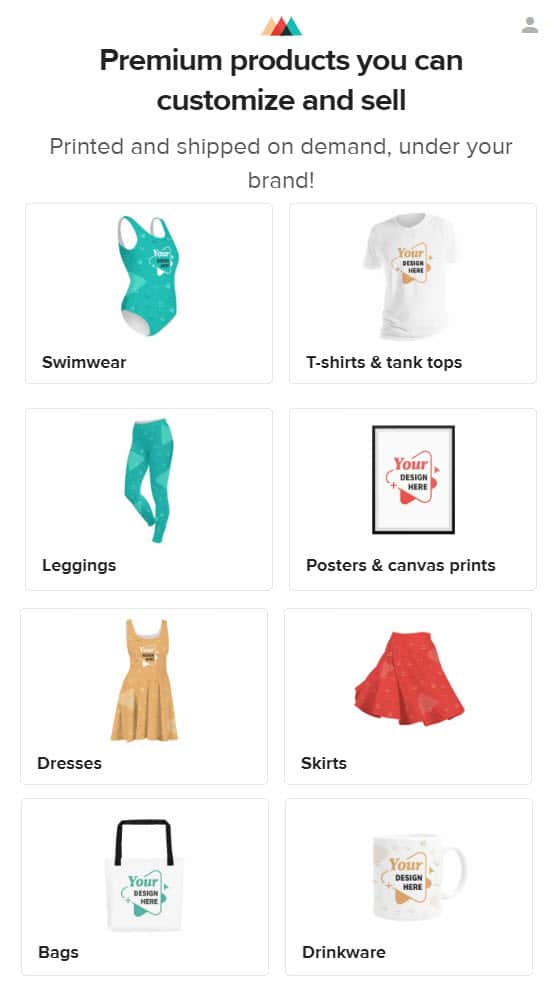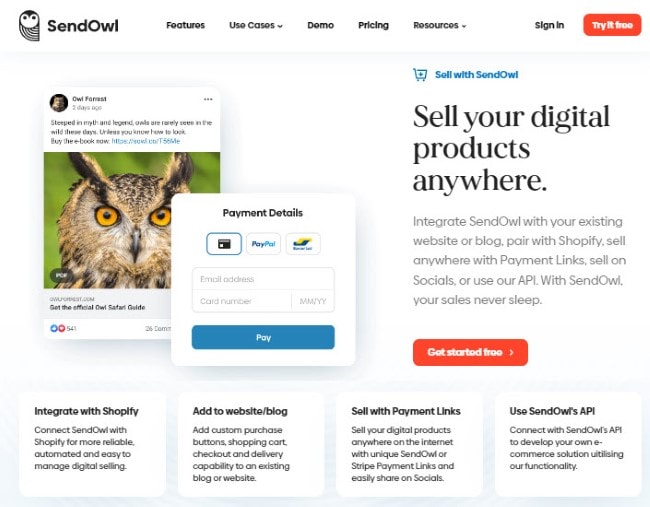Do you want to start an online business but don’t have a lot of money to invest? You’re not alone. Many want to know about online business models that can bring in good money without needing a big budget. When I first thought about starting an online business, it felt daunting. With limited time and funds, I wanted to make a real change, which led me to explore different online business models that work even with minimal upfront investment.
In this article, you’ll discover some of the best online business models you can start. We’ll look at ideas like dropshipping, affiliate marketing, and even starting a YouTube channel. There are options for everyone, whether you have a lot of time or just a little. By the end, you’ll have a good idea of what might work for you and your budget. Let’s explore these ideas together and see which one sparks your interest!

- •Understanding Online Business Models
- Top Business Models for Solopreneurs With Limited Resources
- •1. Personal Branding
- •2. Dropshipping
- •3. Affiliate Marketing
- •4. Print on Demand
- •5. Digital Courses and Online Education
- •6. E-book Publishing
- •7. Blogging and Content Creation
- •8. Youtube Channel
- •9. Podcasting
- •10. Freelancing Platforms
- •11. Virtual Assistance Services
- •12. Social Media Management
- •13. Digital Marketing Agency
- •14. Subscription Box Services
- •15. Handmade and Craft E-commerce
- •16. Niche E-commerce Stores
- •17. Software as a Service (saas)
- •18. App Development
- •19. Online Communities and Membership Sites
- •Frequently Asked Questions
- •What Next?
Understanding Online Business Models
Online business models in 2026 are all about innovation and efficiency, making them a great choice for solopreneurs like you. These models focus on automation, subscription services, and niche markets. With tools powered by AI, it’s easier to manage tasks and reach a global audience without spending too much. This is especially important for solopreneurs who have limited time and budget. Choosing the right business model means you can start small and grow your business at your own pace.
One of the exciting trends shaping online businesses in 2026 is the use of AI for personalization. AI-driven strategies allow businesses to offer products and services specifically tailored to each customer’s preferences, enhancing the customer experience. Additionally, trends such as voice commerce and social commerce are becoming more popular, making it easier for customers to shop using their voices or through social media platforms. Solopreneurs can also explore opportunities in niche markets, where specialized products or services can attract dedicated customers. By focusing on sustainability and using innovative technology, solopreneurs can create profitable online business models that are both environmentally friendly and efficient.
Top Business Models for Solopreneurs With Limited Resources
Starting a business alone can be tough, but don’t worry. Here, you’ll find smart ideas that don’t need much money to get started. These ideas are perfect for those who want to be their own boss without spending too much.
1. Personal Branding
Personal branding is about creating a unique identity and building authority online. It’s a great option for solopreneurs because it has a low financial barrier. You can start with just a smartphone and use free tools like Canva to design your brand. Canva offers templates and guides to help you create a visual identity that stands out. By consistently sharing valuable content on platforms like LinkedIn and Instagram, you can connect with your audience and grow your business.
Many successful entrepreneurs, like Marie Forleo, have leveraged personal branding to build thriving businesses. Forleo used her brand to offer courses and coaching, turning her influence into a significant revenue stream. You can follow a similar path by starting with free webinars or consultations. These not only showcase your expertise but also help build trust with your audience. As you gain credibility, your brand can evolve into a profitable online business model.
The key to personal branding success is authenticity and visibility. Share your story and engage with your audience regularly. This approach doesn’t require a lot of money but does need your time and creativity. By being genuine and relatable, you can establish a strong personal brand, even with limited resources.
2. Dropshipping
Dropshipping lets you sell products without handling any inventory. You can focus on niche markets, which are smaller and more specific groups of people. This strategy has helped many entrepreneurs succeed. For example, Mordechai Arba turned to dropshipping and now runs multiple successful Shopify stores. By targeting niches like women’s fashion and outdoor gear, sellers have found profitable opportunities and built strong businesses.

However, dropshipping isn’t without its challenges. Finding reliable suppliers is crucial. If a supplier fails, it can lead to delays and unhappy customers. Also, there’s a lot of competition, which means you need to stand out. Tools like AutoDS can help by automating tasks, saving you time and effort. Managing customer service and returns is another hurdle, but choosing the right partners and keeping communication open can make a big difference. By focusing on niche markets and using the right tools, you can build a successful dropshipping business and generate income.
3. Affiliate Marketing
Affiliate marketing is a great way to make money online by promoting products you love and earning commissions. It’s perfect if you want a low startup cost and a hands-off approach to earning income. To succeed, you’ll need to build an audience interested in what you’re promoting. For instance, Monica Stott earns around $10,000 monthly by smartly leveraging her audience.

To get started, focus on creating high-quality content that attracts people. This could be through a blog, YouTube channel, or social media. Sharing valuable insights helps you grow your audience, which is key to success. You can use platforms like WordPress for your website, as it’s free and easy to use. Remember to always be honest by disclosing your affiliate relationships. This builds trust with your audience and is crucial for long-term success.
Stay updated with the latest trends like mobile optimization and video content. These techniques are essential as they help you reach more people and keep your strategies fresh. Consider using SEO best practices to drive organic search engine traffic to your content. This way, you’re not just making money online but also establishing a sustainable business model.
4. Print on Demand
Print on demand (POD) is a fantastic way to start selling custom designs on various products without the hassle of managing inventory. This business model is especially great for solopreneurs because it requires low startup costs and allows you to focus on creativity. You can use free design tools like Canva or GIMP to create appealing designs or even a free AI Image generator like ChatGPT or Ideogram. This means you can start your business with minimal investment, catering to niche markets and tapping into the growing creator economy.

Success stories in the POD space, such as Underground Printing, highlight the potential of embracing design trends and strategic marketing. For instance, some stores have reached $15 million in revenue by expanding their product lines and engaging with their communities. The key is to leverage effective marketing strategies like social media ads and influencer collaborations to grow your business. Engaging content and partnerships on platforms like Instagram or TikTok can drive organic search engine traffic to your store, making it a profitable online business model.
In 2026, trends in print on demand emphasize personalization and sustainability, with a rising demand for eco-friendly products. This aligns perfectly with the values of today’s consumers who are looking for unique and sustainable options. By focusing on high-quality and innovative designs, you can establish a successful online business that generates passive income. As you start selling, remember that the best way to build a loyal customer base is to deliver value through your designs and customer experience.

5. Digital Courses and Online Education
Creating digital courses in online education is a fantastic way for solopreneurs to make money while sharing their expertise. This business model involves offering courses or coaching in a specific niche. It’s a medium investment option, as it requires some niche expertise but can lead to significant income if done right. For example, Animal Behavior College is generating a whopping $36.6 million annually from its online courses, showcasing the potential of this model.
To succeed, it’s crucial to validate your course ideas before diving in. You can use surveys and focus groups to gather direct feedback from potential learners. This step helps ensure there’s a demand for your course, allowing you to make necessary tweaks early on. Offering free mini-courses can also serve as a great way to test the waters and attract interest. Platforms like Teachable and SendOwl are popular for launching courses with low upfront costs. These platforms provide tools for course creation and marketing, making it easier to start selling your expertise online.

Starting an online course business can be a great way to generate passive income while helping others learn. With the right strategy, like validating your ideas and using cost-effective platforms, you can build a successful online business that fits your limited time and budget.
6. E-book Publishing
E-book publishing is a fantastic way to share your stories or expertise without needing a big budget. You can write and sell e-books on platforms like Amazon Kindle. This method has a low risk because you don’t need to keep physical inventory. Plus, with free tools like Scrivener, you can start writing your book without spending much money.
Take a look at Mark Dawson as an inspiring example. He earns around $450,000 a year just from self-publishing his thriller novels on Amazon. His success shows how focusing on niche markets and using effective marketing strategies can lead to significant income. Many authors, like Amanda Hocking, have also thrived through self-publishing, taking advantage of platforms like Kindle Direct Publishing to reach readers worldwide.
To market your e-books, use social media or blogging to build an audience. Sharing snippets of your book or engaging with potential readers can drive interest and sales. This type of business model is a great option for solopreneurs looking to generate passive income with relatively low startup costs.
7. Blogging and Content Creation
Blogging and content creation can be a great business for solopreneurs aiming to make money online. You can start a blog or create content for platforms like YouTube and podcasts. This is a popular online business model because it offers various ways to make money, such as through ads, sponsorships, and affiliate marketing. By choosing the right niche market, you can attract organic search engine traffic, which is important for growing your business without spending a lot on paid promotions.
To make the most of your content, you can use tools like Grammarly to ensure your writing is high quality and error-free. It’s also helpful to use platforms that offer immediate ad revenue options. For instance, YouTube lets you earn money through ads once you meet certain criteria like having enough subscribers and views. Blogging can be time-consuming, but it’s a great way to generate passive income over time. You can even combine strategies, such as using both ads and affiliate marketing, to increase your revenue. In 2026, successful content creators are finding value in diverse strategies and using AI tools to enhance content creation and optimization.
8. Youtube Channel
Creating a YouTube channel is a great way to share your passion and earn money through ads and sponsorships. To get started, you’ll need to focus on creating engaging content that resonates with your audience. It’s important to choose a specific niche that you are passionate about and that can capture the interest of viewers. This approach not only helps you stand out in the vast creator economy but also attracts a loyal subscriber base. Commitment to regular content uploads and video optimization can significantly boost your channel’s visibility.
Growing your YouTube subscribers and views involves a mix of creativity and strategy. Engage your audience by posting consistently and collaborating with other creators to reach new viewers. Ensure your video thumbnails and titles are eye-catching to attract clicks. For instance, high-quality thumbnails can improve your click-through rate, which is crucial for growing your audience. YouTube Growth Strategies emphasize these tactics as effective ways to increase your channel’s reach. By focusing on these strategies, you can transform your channel from a simple hobby into a successful online business model.

9. Podcasting
Podcasting is a fantastic way to share your voice and ideas with others. You can start a podcast with just a basic microphone and software like Descript, which helps make your recordings sound professional. You can buy an affordable microphone like the Audio Technica ART2100 for around $100, making it easy to get started without spending too much. As you grow your podcast, you might choose to invest in better equipment to improve your audio quality, but it’s not necessary at the beginning.

Making money from your podcast can come in many forms. You can earn through sponsorships, where companies pay you to mention their products. Another way is through listener donations or subscriptions, where your fans support your podcast directly. Some podcasters also sell merchandise or offer premium content for paying listeners. You might even try live events or affiliate marketing to bring in extra income. With these options, podcasting can be a profitable online business model even if you’re starting small.

10. Freelancing Platforms
Freelancing platforms are a great way for solopreneurs to start making money online with minimal investment. These platforms, like Upwork and Fiverr, allow you to offer your skills and services to a wide audience. You can choose projects that fit your schedule and interests, making it a flexible option for those with limited time. By carefully selecting projects and building a strong portfolio, you can attract higher-paying gigs and grow your business over time.

Diversifying the services you offer is key to reaching more clients. For example, if you’re skilled in graphic design, you could also offer related services like social media management or video editing. This approach taps into niche markets and the creator economy, helping you stand out among popular online business models. Plus, freelancing platforms allow you to build a sustainable business by giving you the freedom to work on projects that excite you while maintaining a hands-off approach to client management.
With freelancing, you don’t need a lot of startup costs—just your skills and a computer. As you gain more experience, these platforms can become a consistent source of income, proving to be a great business model for solopreneurs looking to supplement or replace their day job. By leveraging these platforms, you can build your dream business without the need for extensive resources or time.
11. Virtual Assistance Services
Starting a virtual assistance service can be a great business idea if you’re looking for a low startup cost opportunity. Virtual assistants provide crucial support by managing tasks like scheduling, email management, and even specialized areas such as marketing or bookkeeping. With the rise of flexible work arrangements, there’s a high demand for these services. This means you can start making money online without needing a lot of time or money upfront. You just need good organizational skills and a reliable internet connection.

In 2026, virtual assistant services have been shaped by technology, with trends focusing on AI and automation. This makes it easier to handle tasks efficiently, especially when you’re juggling multiple responsibilities. Solopreneurs can greatly benefit from hiring a virtual assistant, as it allows them to save time and focus on growing their business. According to WithPort, virtual assistants help solopreneurs manage tasks efficiently without the need for a full-time commitment. This flexibility is perfect for those who have limited hours each week to dedicate to their business.
If you specialize in a niche market, like SEO or video editing, you can become even more valuable to clients. This specialization can set you apart in the competitive marketplace and help you build a steady income stream. With the right marketing strategies, you can attract clients looking for high-quality, reliable support. So, if you’re looking to start a profitable online business with minimal upfront investment, virtual assistance services could be the best way to go.
12. Social Media Management
Social media management is like being the voice of a business online. Imagine helping a small business talk to its customers on platforms like Instagram or Facebook. The most exciting part? It can help a business grow without spending a ton of money. By sharing fun posts and stories, businesses can become more popular. This means more people will know about them and visit their websites. It’s like setting up a friendly shop where everyone hangs out, and businesses love that because it can bring in more customers.
For solopreneurs, managing social media offers a great chance to earn money regularly. Many businesses pay a monthly fee to someone who keeps their social media buzzing with activity. This is called a retainer. Considering the high demand, this is a smart way to make money while helping businesses look good online. You’ll need to know what’s trending and use the right tools to get the best results. Learning these skills means you can turn a few hours a week into a steady income.
Running a social media management service is a great way to start a business without spending a lot of money. You can work from home, and all you need is a computer and internet connection. It’s a flexible job, perfect for weekends or evenings, which makes it ideal for those wanting to supplement their day job. Plus, as you get better, you can help businesses grow even more, making you an important part of their team.
13. Digital Marketing Agency
Starting a digital marketing agency can be a great way to make money online. You’ll need to know about SEO, PPC, and social media marketing to help businesses increase their online visibility. It’s one of the profitable online business models that can generate passive income because you can have recurring contracts with clients. This means you do the work once and get paid monthly.

To succeed, focus on niche markets within the creator economy. For example, helping YouTubers or influencers grow their audience. Integrating AI tools can make your services more effective, like using AI to personalize marketing strategies or analyze data. This helps you deliver value to your clients without spending a lot of time. Also, using organic search engine traffic and paid traffic strategies can help drive more visitors to your clients’ websites. This is a great option if you’re looking to start a service-based business with relatively low startup costs.

14. Subscription Box Services
Subscription box services are becoming a popular online business model because they offer curated products that subscribers love receiving on a regular basis. This type of business is a great way to generate passive income. You can focus on niche markets to create unique subscription experiences that stand out from the competition. For instance, you could start selling a box filled with eco-friendly products, a theme that aligns with the growing interest in sustainable businesses. By doing so, you not only meet the desires of your audience but also contribute to a more sustainable world.

The subscription model is a hands-off approach that ensures steady income through recurring revenue, making it an ideal choice for solopreneurs with limited time and budget. You can build your business online using platforms like WordPress and Woocommerce, which offer low startup costs. Engaging with customers is crucial, so consider personalized services to enhance the customer experience. According to Expert Market Research, the subscription box market is projected to expand significantly through 2035, driven by customer interest in personalized, recurring deliveries. This growth highlights the importance of creating a high-quality subscription service that delivers value consistently.
15. Handmade and Craft E-commerce
Selling handmade items online can be a rewarding and profitable business model for solopreneurs. With a focus on unique, personalized products, artisans can tap into niche markets that appreciate quality and authenticity. The handmade craft e-commerce market is expected to grow significantly, with a projected CAGR of 4.7% from 2024 to 2031. This growth is driven by consumer demand for personalized and sustainable products, making it a great option for those looking to start small with low startup costs.
To get started, artisans can use popular platforms like Etsy, Amazon Handmade, and Bonanza to reach customers. These platforms offer various features that cater to handmade sellers, helping them showcase their high-quality creations. Ensuring the authenticity of your products is crucial, as 8 in 10 online shoppers value quality and authenticity, driving demand for unique, well-crafted goods.

Successful handmade brands like Etsy and Glossier have thrived by focusing on niche markets and engaging with their communities through social media. These brands have leveraged direct-to-consumer sales strategies to grow their businesses. By emulating such strategies, solopreneurs can build a loyal customer base and generate passive income by selling physical products online. This business model offers a sustainable way to make money online while allowing creators to express their artistic talents.
16. Niche E-commerce Stores
Starting a niche e-commerce store is a great way to make money online, even if you have limited time and budget. These stores focus on selling products that cater to specific interests or needs, giving you an edge in a crowded market. For example, MVMT, a watch brand, thrived by targeting style-conscious consumers, eventually selling for $300 million. This shows that when you focus on a niche, you can create a successful online business by connecting deeply with a specific audience.

To get started, pick a niche that you are passionate about or that aligns with current trends. The health and wellness sector, sustainable products, and pet supplies are expected to be among the top niche markets by 2026, with e-commerce projected to reach $5.1 trillion globally. Platforms like Shopify offer a relatively low barrier to entry, allowing you to set up your store with ease. Once your store is up, leverage SEO and social media to attract organic search engine traffic. This helps you reach the right audience without spending a lot on paid traffic. Offer high-quality, exclusive products to stand out and keep customers coming back.
Building a niche e-commerce store can also be a sustainable business model. By focusing on a specific type of product or audience, you can create a brand that resonates with your customers, driving long-term growth. With the right marketing strategies, you can grow your business into a profitable venture, generating passive income and providing value to a dedicated customer base.
17. Software as a Service (saas)
Software as a Service (SaaS) is a popular online business model that offers software solutions on a subscription basis. For solopreneurs, this model is appealing because it provides high profit margins and recurring revenue. With SaaS, you can start small and scale as your business grows, making it a great option for those looking to build a sustainable business. You don’t need to worry about selling physical products or managing inventory, which keeps the overhead costs low.
One of the main benefits of SaaS for solopreneurs is its scalability and access to advanced tools without upfront costs. This means you can focus on growing your business without the burden of large initial investments. SaaS also allows you to target niche markets, which can be more manageable and less competitive than broader markets. In 2026, micro-SaaS ideas have gained popularity due to their low entry barriers and potential for innovation.
To succeed with a SaaS business, you might need technical expertise or partnerships. However, the opportunity for innovation is significant, and you can create unique solutions that deliver value to your customers. By focusing on the specific needs of your target audience, you can develop a service that stands out and attracts loyal subscribers. This approach not only helps in generating passive income but also ensures long-term growth for your business.
18. App Development
App development is all about creating and selling mobile applications that solve specific problems for users. While it might require a high initial investment, the returns can be significant if you focus on building a unique app that caters to niche markets. You don’t need to be a coding expert to dive into this field. Collaborating with developers or using no-code tools can be a great way to get started without needing advanced technical skills.
Trends in app development for 2026 include the use of AI, machine learning, and 5G technology. These innovations can help create apps that are smarter and more efficient. Cross-platform development is also becoming popular, allowing you to reach more users by making your app available on different devices. Additionally, staying updated with these trends is crucial for maintaining a competitive edge.
To succeed in app development, focus on delivering high-quality solutions that address real needs. This approach not only helps in making money but also in building a sustainable business. By choosing the right problem to solve and employing effective marketing strategies, you can generate passive income and grow your business over time.
19. Online Communities and Membership Sites
Starting an online community or membership site can be a great way for solopreneurs to make money and grow their business. These platforms let you create a special place where people with the same interests can join in, learn, and share. By charging membership fees, you can have a steady income every month. This means you don’t have to worry about finding new customers all the time. Instead, you can focus on delivering value to your members, like giving them high-quality content and chances to connect with others. This keeps them coming back and makes them feel like they are part of something special.

Creating a membership site is also a smart move because it builds a loyal community around your niche. Think of it as a club where members get to learn new things and have fun together. You can offer exclusive content, such as online courses or virtual meetups, which makes members feel they are getting something unique. This sense of belonging is powerful and can lead to more people joining your community. Plus, as your community grows, members can help each other, share ideas, and even help you come up with new ways to improve your business.
For solopreneurs with limited resources, starting an online community or membership site is a great option because it doesn’t require a lot of money to begin. You can use platforms like WordPress to set up your site, which is cost-effective and easy to manage. If you’re looking for inspiration, check out Neiru, a membership website on Japanese nail art. By focusing on providing value and engaging with your members, you can create a successful online business that grows over time, giving you more time and freedom to enjoy what you love.

Frequently Asked Questions
Got questions about online business models? This section is here to help clear up any confusion and provide simple answers. Dive in to learn more and boost your understanding.
What Is an Online Business Model?
An online business model is how a company makes money on the internet. It explains what the business sells and how it delivers that product or service to customers. Some examples include selling products directly, offering services, or earning through ads and subscriptions.
What Are the 4 Types of Business Models?
The four types of business models include business-to-consumer (B2C), where businesses sell directly to customers, and business-to-business (B2B), where they sell to other businesses. There’s also consumer-to-consumer (C2C), where people sell to each other, like on eBay. Finally, consumer-to-business (C2B) is when individuals offer products or services to businesses.
Which Is the Most Common Online Business Model?
The most common online business model is affiliate marketing. In this model, you earn money by promoting other people’s products online. Each time someone buys through your link, you get a small part of the sale.
What Are the 4 E Business Models?
The four E-business models are Business-to-Consumer (B2C), where businesses sell directly to customers online, and Business-to-Business (B2B), which involves companies selling products or services to other businesses. Consumer-to-Consumer (C2C) allows individuals to sell to each other, often through platforms like eBay. Lastly, Consumer-to-Business (C2B) involves individuals selling products or services to companies, such as influencers promoting brands.
How Can Solopreneurs Leverage Free Resources or Community Support to Boost Their Business Models?
Solopreneurs can use free tools like Canva for design and Google Analytics for tracking. Joining online forums and groups can help them learn new skills and get advice. They can also find mentors or partners in these communities to help their business grow.
What Next?
I hope this article helped you find some online business models that spark your interest. You might have found something that fits your budget and time. If you still have questions, feel free to ask them in the comments below.
Think about which model suits you best and why. Share your thoughts in the comments, too. It’s okay if it feels a bit tricky. Many people feel the same way when starting something new.
Take what you’ve learned and make a simple plan. Try one of these online business models and see how it goes. Don’t forget, you can share this article with friends using the buttons below. Sharing can help others find their path, too.
Share this post with your friends & followers:
